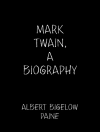Dodo Collections brings you another classic from Rudyard Kipling, ‘Traffics and Discoveries.’
From ‘The Captive’: The guard-boat lay across the mouth of the bathing-pool, her crew idly spanking the water with the flat of their oars. A red-coated militia-man, rifle in hand, sat at the bows, and a petty officer at the stern. Between the snow-white cutter and the flat-topped, honey-colored rocks on the beach the green water was troubled with shrimp-pink prisoners-of-war bathing. Behind their orderly tin camp and the electric-light poles rose those stone-dotted spurs that throw heat on Simonstown. Beneath them the little Barracouta nodded to the big Gibraltar, and the old Penelope, that in ten years has been bachelors’ club, natural history museum, kindergarten, and prison, rooted and dug at her fixed moorings. Far out, a three-funnelled Atlantic transport with turtle bow and stern waddled in from the deep sea. Said the sentry, assured of the visitor’s good faith, ‘Talk to ’em? You can, to any that speak English. You’ll find a lot that do.’
Also includes the stories ‘The Bonds of Discipline, ‘ ‘A Sahibs’ War, ‘ ”Their Lawful Occasions, ” ‘The Comprehension of Private Copper, ‘ ‘Steam Tactics, ‘ ”Wireless, ” ‘The Army of a Dream, ‘ ”They, ” ‘Mrs. Bathurst, ‘ and ‘Below the Mill Dam, ‘ and the poems ‘From the Masjid-al-Aqsa of Sayyid Ahmed, ” Poseidon’s Law, ‘ ‘The Runners, ‘ ‘The Wet Litany, ‘ ‘The King’s Task, ‘ ‘The Necessitarian, ‘ ‘Kaspar’s Song in Varda, ‘ ‘Song of the Old Guard, ‘ ‘The Return of the Children, ‘ ‘From Lyden’s ‘Irenius, ” and ”Our Fathers Also.”
Kipling’s works of fiction include The Jungle Book (1894), Kim (1901), and many short stories, including ‘The Man Who Would Be King’ (1888). His poems include ‘Mandalay’ (1890), ‘Gunga Din’ (1890), ‘The Gods of the Copybook Headings’ (1919), ‘The White Man’s Burden’ (1899), and ‘If—’ (1910). He is regarded as a major innovator in the art of the short story; his children’s books are classics of children’s literature; and one critic described his work as exhibiting ‘a versatile and luminous narrative gift’.
Kipling was one of the most popular writers in England, in both prose and verse, in the late 19th and early 20th centuries. Henry James said: ‘Kipling strikes me personally as the most complete man of genius (as distinct from fine intelligence) that I have ever known.’ In 1907, he was awarded the Nobel Prize in Literature, making him the first English-language writer to receive the prize, and its youngest recipient to date Among other honours, he was sounded out for the British Poet Laureateship and on several occasions for a knighthood, all of which he declined.












